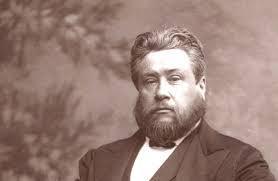
With the Southern Baptist Convention going on and its recent history of fighting against the doctrines of grace, AND fighting against the people who bring them, it might be good to get a little perspective. Here are two. Thomas Kidd at Desiring God, writes about the doctrines of grace in church history. And S. Lewis Johnson preaches on the inconsistent stance of four-point Calvinists.
For those unfamiliar with the terms, here are some quick definitions first. Calvinism is a position where those who adhere to it have
a very high view of Scripture and seeks to derive its theological formulations based solely on God's Word. It focuses on God's sovereignty--stating that God is able and willing by virtue of His omniscience, omnipresence, and omnipotence to do whatever He desires with His creation. It also maintains that within the Bible are the following teachings: That God, by His sovereign grace, predestines people into salvation and that Jesus died only for those predestined and that God regenerates the individual to where he is then able to and wants to choose God and that it is impossible for those who are redeemed to lose their salvation.
Miracle Max was an Arminian.
The Arminian's flower is the Daisy.
Arminianism, on the other hand, maintains that God predestined but not in an absolute sense. Rather, He looked into the future to see who would pick him, and then He chose them. Jesus died for all peoples' sins who have ever lived and ever will live--not just the Christians. Each person is the one who decides if he wants to be saved or not. And finally, it is possible to lose your salvation (some Arminians believe you cannot lose your salvation).
"He loves me, He loves me not..." JK!

GotQuestions has a good overview. Here is an excerpt-
The five points of Calvinism can be summarized by the acronym TULIP. T stands for total depravity, U for unconditional election, L for limited atonement, I for irresistible grace, and P for perseverance of the saints.Other terms for Calvinism are Reformed Theology or Doctrines of Grace.


SBC logo
Irrespective of any activity at the Southern Baptist Convention, Thomas Kidd asks, Did you know Calvinism is not new to Baptists?
Calvinists once dominated Baptist church life in America. In a 1793 survey, early Baptist historian John Asplund estimated that there were 1,032 Baptist churches in America. Out of those, 956 were Calvinist congregations. These were “Particular Baptists,” for they believed in a definite atonement (or “particular redemption”), that Christ had died to save the elect decisively.This was maintained until well into the nineteenth century. Then Kidd asks,
How did Calvinism lose its dominant position among Baptists? The American Revolution, with its focus on liberty, gave new life to “free will” theology in traditionally Calvinist denominations. But Calvinism remained ascendant among Baptists well into the nineteenth century. As Baptist churches spread into America’s frontier, they took Calvinist commitments with them. The newly-formed Elkhorn Baptist Association of Kentucky, for example, decided in 1785 to require assent to the Philadelphia Baptist confession of faith, which closely followed the 1689 London Baptist confession. Among other points, the Elkhorn Association affirmed that “by the decree of God, for the manifestation of his glory, some men and angels are pre-destinated, or fore-ordinated to eternal life, through Jesus Christ, to the praise of his glorious grace; others being left to act in their sin to their just condemnation, to the praise of his glorious justice.”
By the 1830s, the stage was set for the slow weakening of Calvinism among mainstream Baptists. But Arminian theology would never become as dominant among Baptists as Calvinism once was. When groups such as Desiring God and the Southern Baptist Theological Seminary began to reinvigorate Calvinist theology for Baptists and other evangelicals in the late twentieth century, some Arminian Baptists insisted that free will and general atonement were the “traditional” Baptist positions on those issues. A deeper historical look, however, reveals the overwhelmingly Calvinist convictions of early America’s Baptists

Tulip. Source- Graphics Fairy
It is a really good essay, thorough without being too long. It's not that I always adhered to the doctrines of grace. It took a bit of time to study and for the Spirit to cement these things in my mind and heart. One video that went a long way to opening my eyes was a Paul Washer segment. I'll post that below. I understand that the doctrine is difficult for people to accept, and many don't or won't believe it.
Therefore, if anyone has any questions concerning these doctrines of grace please don't hesitate to ask. If anyone has a problem with what is being said or written please don't be afraid to speak up. I believe what Paul Washer is saying is biblically true. Understanding the doctrines of grace/election/Calvinism is vital in understanding God's work in regards to salvation. It's like this-
Picture Jesus as the Living Water. There are urns of fresh, holy, heavenly, pure water. There are two methods. One drinks the water as it is given out. Or one can put one's hand in the water to test its temperature, leaving behind oil from one's hand, and dirt from one's fingernails, before choosing to scoop some into one's hand and drink. But now the water is no longer pure. Man added something to it. The second scenario is man's participation in his salvation, by "deciding" to drink the Living Water and "accepting Christ". But it's polluted, even one drop from man pollutes it and it is no longer pure (grace).
In studying Galatians 1 and the importance of pure grace (unmixed with Legalism or any other man-made invention), John MacArthur says in his Commentary on Galatians,
Paul would not tolerate one drop of legalism being mixed with God's pure grace. To turn away from any part of the grace of Christ is to turn away from God to that of human effort. ... A single drop of poison in a large container can make all the water lethal. And a single false idea that in any way undercuts God's grace poisons the whole system of belief.So...no, we don't "decide for Christ". We don't "accept Christ". We have no part in our salvation. Why? We're dead. God makes salvation possible by sending the spirit of understanding, the spirit of repentance ... He initiates it all. (Ephesians 1:4, Philippians 1:6, Hebrews 12:2). As Paul explained the extent of our participation in salvation, in 1 Corinthians 3:6,
I planted, Apollos watered, but God gave the growth.
Or as Miracle Max explains,
There's a big difference between mostly dead and all-dead. Mostly dead is slightly alive. With all-dead, well, with all-dead there's usually only one thing you can do.A Calvinist believes we are all-dead.
Inigo Montoya: What's that?
Miracle Max: Go through his clothes and look for loose change.
Here is that Paul Washer video I promised. A young seminarian approached Washer at the 2009 Deeper Conference and asked about election. He asked also about God choosing some people to salvation and others He says 'you, you, you, send to hell'. This is a common question. Washer answers brilliantly.
There are helpful captions so you can read along with what Washer is saying. It's worth listening to. I love the part when he takes off his glasses and looks like he is settling in for a good discussion, lol.

Just as grace is unmixed with any man's "decision" or any man's "works" in his own salvific rebirth, any less than the total TULIP and you have a deformed flower. Yet some say they believe the biblical verses relating to T-U-I-P but not L, limited atonement, This is where they say that God died for all people, not just a few chosen, or elect. 4-Pointers believe that His blood was not limited to those whose names were written down in the Lamb's Book of Life since before the foundation of the world.
 Here is S. Lewis Johnson in preaching Galatians 1:4, The Great Emancipation, side-tracking a bit to the inconsistent stance of 4-point Calvinists.
Here is S. Lewis Johnson in preaching Galatians 1:4, The Great Emancipation, side-tracking a bit to the inconsistent stance of 4-point Calvinists.There are individuals who say, “I am a Calvinist, but I am a four-point Calvinist.” Now, I respect an individual who says this. I think, however, that it is a very inconsistent position. Richard Watson, probably the greatest of the Arminian theologians said, “It is perhaps the most inconsistent theory to which the varied attempts to modify Calvinism have given rise. Here are individuals who claim to believe in total depravity, unconditional election, invincible grace, and the perseverance of the saints. But they do not believe that Jesus Christ came to die for his own, but rather for every one.”He was such a humble man! Though this three-segment essay that included definitions, a history of Calvinism in Baptist church history, and 4-point Calvinism's illogic has been long, I hope that it brought some kind of truth and honorable reason to the concept. One last comment, this one on free will. I read the following comment from a man named Chancellor (Buddy) Roberts about free will,
Now, let me ask you to look at this text. If we say that Jesus Christ intended to die for all men, then his intention was frustrated, because both of us will grant that not all people are saved. I think, of course, what happened is the best judge of what God intended. In other words, the result will tell us what he intended to do. But if Christ intended to die for all men, if we say that he gave himself for everyone, then his intention was frustrated. The frustration of his intention is offensive, in my eyes; I say it in love, to the perfections of the Son of God. To think that the intention of his is frustrated, to me, limits our understanding of the Son of God.
Furthermore, if we say that died in order to save all, we cannot speak then of a substitution that was effectual. The substitution was ineffectual. It was not really a substitution at all. For, even though he has done what he has done, it is possible for heaven to have further claims against individuals who are not saved. So the substitution was not really a substitution, the work was not really done. The purchase did not secure salvation for all for whom he made it. Heaven’s claims are not really met. It is not then a finished work, logically.
Now, what is this? This is dishonoring to the work of our adorable substitute. So the idea that Jesus Christ could die for all men and yet not be effective in his intention is dishonoring to the Son of God, dishonoring to his perfections, dishonoring to his work as substitute. And furthermore, if you reflect about it for a moment, it should shatter your confidence and assurance, because if it is possible for God to be frustrated in one of his great works, the work of the atonement, how do you know that he cannot be frustrated in the other promises the has given us? Is it really true then that he does all of his pleasure, as the word of God tells us? You can see that this then would be most damaging to my assurance and hope that he will really save me, who has believed in the Lord Jesus Christ.
Now, I say that in love, I say that because I would like to recover some for an understanding of the gospel of the grace of God that will most honor and glorify our great God. If you shall happen to be of the contrary option, I hope that you will not be upset by that. There are probably other things that we disagree about. And it is possible, of course, that I am wrong in two or three other things. Though I think I am right in this one thing, you understand. You still may be right in more things than I, but I hope we remain friends. But we understand each other I hope.
Free will (which Arminians insist God gave us) necessitates not merely the capacity to choose but also having the right to choose. If man has free will, then he must necessarily have the right to choose whatever he wants and, therefore, God has no right to punish him for how he exercises that free will. Having the right to choose removes any culpability for choices made because it is presumed that God has given man the right to make those choices.We only have free will in the capacity in which we are limited by our nature. Can a fox choose to write Shakespeare? Can a lion choose to be a vegetarian? No, they can only do things according to their nature. Likewise we as totally depraved humans cannot choose Good. We hate God and He is dead to us. Since we are totally sinful through and through, ("all-dead") the only free will we have is to choose to sin. Therefore we cannot "choose God" or "decide for Jesus." Jesus has to do it for us, and blessedly, He has.
 "I would rather believe a limited atonement that is efficacious for all men for whom it was intended, than a universal atonement that is not efficacious for anybody, except the will of men be added to it." (Spurgeon Sermons, Vol. 4, p. 70).
"I would rather believe a limited atonement that is efficacious for all men for whom it was intended, than a universal atonement that is not efficacious for anybody, except the will of men be added to it." (Spurgeon Sermons, Vol. 4, p. 70).---------------------------------
Further reading
Essay- Phil Johnson: The Hall of Church History: The Arminians
Sermon by Jeff Noblit from Ephesians, (the one Paul Washer recommends in the above video clip):
Election Pure and Simple
Essay- John MacArthur, What is the Doctrine of Election?
10-minute video- John MacArthur on the Doctrine of Election
9-minute video- John Piper on the Doctrine of Election

